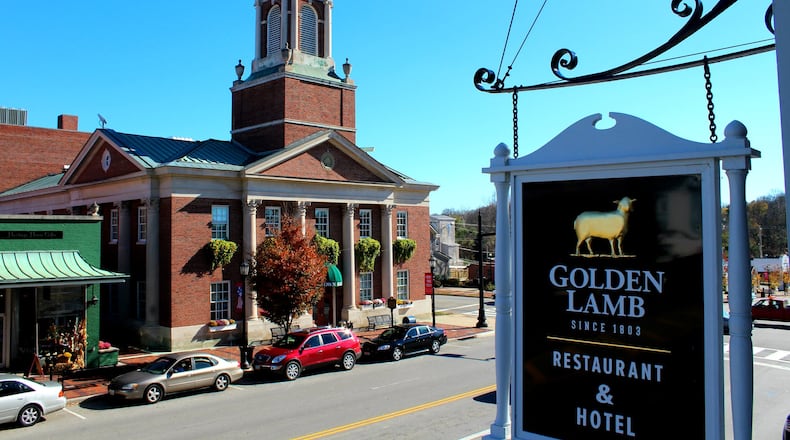City Manager Scott Brunka said the city’s goal is to support a full-time fire department with 12 full-time firefighters per shift; maintain adequate response times and a strong service level; recruit and retain personnel; and maintain a reserve fund of 25% to 30% of its annual budget.
Fire Chief Steve Johnson said calls for fires and EMS runs continue to increase as more residents move in and more nursing homes opened. The number of calls for service continues to fluctuate over the the past six years, from 2017 with 3,286 fire and EMS runs and in 2022 with 3,472 calls for service. The busiest year for the Lebanon firefighters/paramedics was in 2021 when the department responded to 3,643 calls for service.
Johnson said 10% to 20% of the EMS runs are non-emergency runs.
The operating budget for 2023 for the Lebanon Fire Division is $5.89 million and the current fire levy expires at the end of 2024. Currently the city has eight full-time firefighter and four part-time firefighters per shift.
Brunka said, “over reliance on part-time staff generates significant risk.”
He and Johnson said Lebanon is struggling like many area communities to hire and retain firefighters.
Since 2018, Lebanon has hired 45 different part-time personnel with only 13 left on the part-time roster. Of the 32 firefighters that left, the average tenure was 15 months. However, if there are not enough part-time firefighters available, the city may have to temporarily shut down Station 42 located near the Interstate 71/Ohio 48 interchange, officials said. In addition, it costs nearly $5,000 to outfit a new firefighter.
Among some of the options being discussed to fund the department are:
- Option 1: A five-year 9-mill replacement levy which will cost residents $98 more a year additional which will support current staffing levels and fire fund cash balance reserve, but over relies on part-time firefighters.
- Option 2: A five-year, 9.75-mill levy which would support hiring four new full-time firefighters but would not support goal of 12 full-timers per shift and would require a General Fund subsidy to maintain the 25% cash reserve level. It would cost the owner of a $200,000 home an additional $144 a year.
- Option 3: A five-year, 10-mill replacement levy would support hiring four new full-time firefighters and the fire fund cash reserve goals, but it would not support goal of 12 full-time firefighters per shift. This would cost the owner of a $200,000 home an additional $159 a year.
- Option 4: A five-year, 11-mill levy would support the hiring of 10 new full-time staff, but would only permit a 20% cash reserve level. The option would support the goal 12 full-time firefighters per shift. It would cost the owner of a $200,000 home an additional $220 a year.
- Option 5: A 0.5% income tax increase with 75% of the increase going to fire operations, full income tax credit restored, and the fire levy reduced by 2-mills. Officials said this option would support the hiring of 10 new firefighters and achieve the 12 full-time/two part-time firefighters per shift goal; supports the fire fund cash reserve goal; directs a portion of the tax burden onto non-residents who pay income tax rather than property tax; lessens the burden on fixed-income/retired residents; and restores the full income tax credit for residents.
Of the $12.6 million in income taxes collected in 2022, 15% are from business net profits; 20% are from individual filed returns; and 65% are from employer withholdings. Of withholding collected, 65% are from non-residents who work in the city, officials said.
Brunka said about 70% of Lebanon’s residents work outside of the city.
Councilman Brad Lamoreaux said, “it’s just math. People don’t want to raise taxes but want the services.”
Mayor Mark Messer said he liked the Option 5 proposal.
“We need to go to a full-time fire department because in the next three to five years there’s going to be big growth and development in the city,” he said. “Whatever option is selected, council needs to be united in promoting the levy. Let’s pick an option and move forward.”
Brunka said Lebanon has one of the lowest income tax rates in southwest Ohio at 1% and only grants a 0.5% income tax credit for income taxes paid elsewhere. The average is 1.5% in this region.
Brunka said the city typically places a levy renewal on the ballot a year in advance before the current levy expires.
He said council will be able to discuss the proposed options during its work sessions and meetings during March with a goal to adopt a resolution to place a fire levy on the Nov. 7 general election ballot at council’s March 28 meeting.
About the Author

